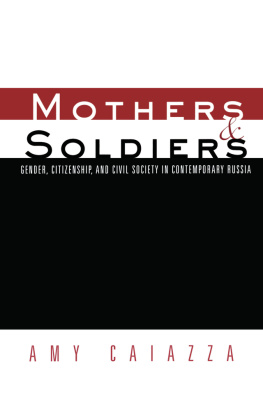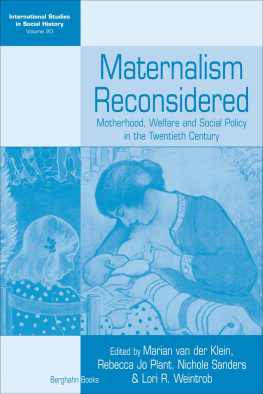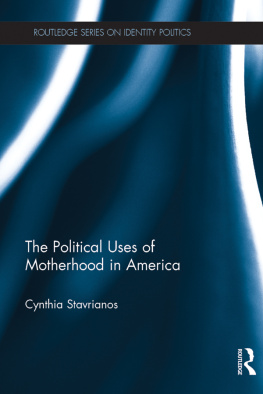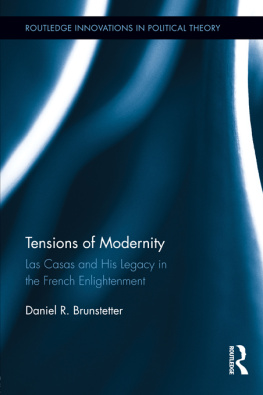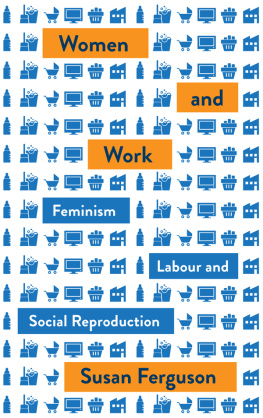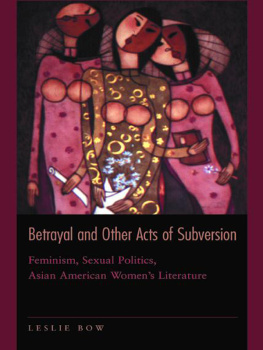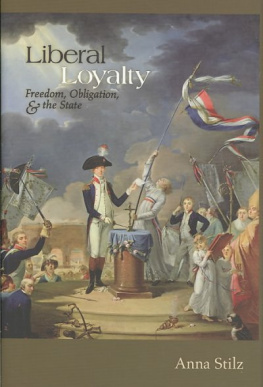This book is a publication of
Indiana University Press
601 North Morton Street
Bloomington, IN 47404-3797 USA
http://www.indiana.edu/~iupress
Telephone orders 800-842-6796
Fax orders 812-855-7931
Orders by e-mail iuporder@indiana.edu
1999 by Kathleen Kennedy
All rights reserved
No part of this book may be reproduced or utilized in any form or by any means, electronic or mechanical, including photocopying and recording, or by any information storage and retrieval system, without permission in writing from the publisher. The Association of American University Presses' Resolution on Permissions constitutes the only exception to this prohibition.
The paper used in this publication meets the minimum requirements of American National Standard for Information SciencesPermanence of Paper for Printed Library
Materials, ANSI Z39.48-1984.
Manufactured in the United States of America
Library of Congress Cataloging-in-Publication Data
Kennedy, Kathleen, date
Disloyal mothers and scurrilous citizens: women and
subversion during World War I / Kathleen Kennedy.
p. cm.
Includes bibliographical references and index.
ISBN 0-253-33565-5 (cl. : alk. paper)
1. World War, 1914-1918WomenUnited States. 2. Subversive activities
United States. 3. World War, 1914-1918Protest movementsUnited States.
4. Political persecutionUnited StatesHistory20th century. I. Title.
D639.W7T69 1999
940.3'082dc21 98-55989
1 2 3 4 5 04 03 02 01 00 99
CONTENTS
ACKNOWLEDGMENTS
INTRODUCTION
1. Loyal Mothers and Virtuous Citizens: Womens Citizenship on the Eve of the Armageddon
2. Motherhood and Subversion: The Case of Kate Richards OHare
3. Liberty with Strings: The Case of Emma Goldman
4. The Venom of a Bolshevik Woman: The Case of Rose Pastor Stokes
5. Disorderly Conduct: Subversion and the Political Woman
6. Conduct Unbecoming: Subversion and the Professional Woman
CONCLUSION
NOTES
BIBLIOGRAPHY
INDEX
Throughout my life, I have been blessed with wonderful teachers. At Ausable Valley Central High, I learned the art of historical research from Miss Mary Haney and from my father, John Kennedy. At the State University of New York, Plattsburgh, I developed a passion for history and womens studies in classes taught by Anita Rapine, Carol Leonard, and Harriette Walker. At the University of California, Irvine, I learned how to think more creatively and critically. I am grateful to my dissertation advisor, Jon Wiener, and to Amy Stanley, Leslie Rapine, James Given, and Spencer Olin for their criticisms and encouragement. At Irvine I also found the support of friends and colleagues who made my graduate career a true pleasure. In particular I would like to thank Ellen Broody, Joan Aries, Robert Sieber, Bill Billingsly, Anne Marie Scholtz, Linda Peterson, Scott Howlett, Kyle Cuordileone, Jennifer Reed, Anne Walthall, Sharon Ullman, and Robert Moeller.
As they always do with such studies, research librarians played a central role in this project. In particular, I would like to thank the research staffs at the University of California, Irvine, the Swarthmore College Peace Collection, the Tamiment Institute of Labor History, the National Archives, the State Historical Society of Wisconsin, the University of Texas at Dallas and Western Washington University. The University of Texas at Dallas and Western Washington University provided financial assistance during this project.
Frances Early has been a constant source of support throughout my career and has on many occasions shared her research. She is a model of a feminist scholar and was especially generous to a new colleague. I also want to thank Ruth Alexander and Sally Miller for reading parts of this manuscript. This work has also benefited from many anonymous readers who have offered their criticism through the years. I would also like to thank Michael Wilson, Julie Reuben, and Linda Williamson for their support.
The editorial staff at Indiana University Press, in particular, Joan Catapano, Jane Lyle, and Michael Lundell, guided this manuscript through the various publication processes with care and diligence. Kathy Babbitt saved me from many embarrassing sins against the English language and offered insightful comments about the manuscripts content and argument. I appreciate the care and interest that my manuscript received while in their hands.
I am fortunate to come from a family that values education and that encouraged me from a young age to seek knowledge. My father, John Kennedy, and my aunt, Mary Patricia Kennedy, both extraordinary teachers, have been models of professionalism throughout my career. My mother, Mary Kennedy, has kindly tolerated her daughters decision to study and live thousands of miles from home. I know how difficult it has been for her to let me go, and I am grateful for the fact that she still provides me with a home. My sisters, Colleen Kennedy and Maureen Kennedy Badger, have been constant boosters and have even agreed to buy this book.
Finally, I want to thank my family and friends here in Bellingham. My colleagues and students at Western Washington have provided me with a place at which I love to teach. I am especially grateful to Nancy van Deaden, Danish, Alan Galley, Midori Takagi, and Chris Friday for their advice on this project. My immediate family has, of course, meant everything to meEliot for demanding that I take him to the beach every morning rain or shine and Rigel for leaving his special mark on this project.
This work is dedicated to two women who have changed my life and who, for different reasons, I love very much. Lori has been a friend and colleague for almost two decades. In that time we have argued about feminist theory, taken motorcycle tours of NYC, and have just hung in there. Denise Seibert simply continues to take my breath away and provides the most important reason for getting up every morning.
On the eve of American participation in World War I, Anna Strunsky and William English Walling exchanged a series of angry letters. Walling, a socialist who supported Wilsons war plans, denounced Strunskys antiwar position as Quakerism, warning her that her stance constituted treason:
Of course I think your proposal to attack in the back those who are giving up their lives for democracy, peace, and anti-militarism is criminal to the last degree. But the world is moving in spite of all you do to help the militarists and reactionaries. You are their accomplice and neither I nor mankind, nor the genuine idealists and revolutionists of the world will ever forget or forgive what your kind has said and done in this great hour. If I fight it will be against the traitors to internationalismI trust you will not be among them.
Strunskys tone was mild in comparison. She admonished Walling for trivializing her position. A statement does not offer a condition, she noted, you cannot turn me into a [Quaker] by saying so. Her anti-war stance, she argued, no more constituted Quakerism than his pro-war position made him cruel and bloodthirsty. Rather, she based her opposition to the war on the same principles that in 1905 had led her into the streets of Petrograd to support Russian workers who were protesting the tsar. The present crisis, she reminded Walling, had led many rational individuals to hyperbole and to politically dubious positions. She hoped that he would not be among them. Once the present crisis was over Strunsky anticipated a reconciliation, telling Walling that he would understand me as well as I understand you and then we will laugh together.


